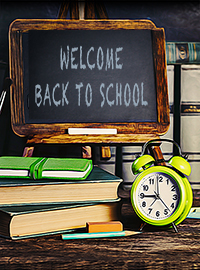| Public Education and its Enemies |
 |
|
By Ben Boychuk
Thursday, September 17 2015 |
First of an occasional series. At the heart of every argument, squabble and fight over public education is a profound disagreement about what schools are supposed to do. Education, according to the Global Partnership for Education, is “more than reading, writing, and arithmetic.” It is, rather, “the single most effective way of reducing poverty.” The solution, therefore, is “greater investment” in schools. Historically, education in the United States has been a state and local concern. Until 50 years ago, the national government remained on the periphery. Today, however, “there is growing consensus,” says the U.S. Department of Education, “that America’s students need to be prepared to compete in a world that demands more than just basic skills.” The nation requires a set of rigorous standards to “ensure students have the skills to compete in today's global, knowledge-based economy.” What is the point—the purpose—of “public” education? The answer is in the term itself—to educate the public. Educate the public for what? For citizenship in an ostensibly free and self-governing republic. It is true that education is more than the “Three-R’s” or “basic skills.” But Americans are not born to be mere participants in a “global, knowledge-based economy.” John Taylor Gatto, the former New York City teacher of the year and one of the most trenchant critics of the American system, offered a rejoinder to the current edu-speak in a 2001 symposium for Harper’s magazine, of all things. “If you go through the 20 volumes of Thomas Jefferson’s writings,” Gatto said, “you can distill five principles that he said were justifications for schooling.” “The first two were to teach people their rights and to teach them how to defend those rights,” he explained. “The third,” he continued, “was to know the ways of the human heart so well that you can be neither cheated nor fooled. There isn’t a school in the United States, certainly not a public school, that would dream of trying to aim for those goals.” “Four deals with the relation of citizens to experts: A citizen must never be intimidated by experts,” he went on. “Experts deal only in facts, but important decisions are matters of philosophy and valuing, not fact. So the expert must always be subordinate.” “And five is that an educated person possesses useful knowledge: how to build a house, how to grow food, how to make a dress, etc.,” Gatto said. Those are excellent principles, all of which have the virtue of being true. And Gatto may be excused for indulging in a bit of rhetorical hyperbole. He’s wrong, of course, that there “isn’t a school in the United States” that would follow Jefferson’s model. In a country of 318 million people with a vast geography, there are islands and enclaves where genuine learning for liberty lives and breathes. The basic point here is public education isn’t necessarily government education. If the real goal of public education, properly understood, is to educate the public, then it doesn’t matter where children learn those skills. It could be in a public school. It could also be in a private school, a parochial school, or at home. Therein lies the problem. For partisans of government education, other forms of public education are illegitimate. “Private” schools may be tolerated as long as they remain at the margins. But if they ever threatened to unsettle the government’s virtual monopoly on schooling, the resistance would be fierce. Who, then, are the enemies of genuine public education? The levelers, the centralizers, the entrenched bureaucrats, the unions, the hucksters, the lifers and the lobbyists. We find them in politics at every level of government and within both major political parties. Lyndon Johnson may have given us the Elementary and Secondary Education Act, which dramatically escalated the federal government’s meddling in state and local government affairs, but George W. Bush gave us No Child Left Behind, which effectively nationalized education. We find them in the teachers’ colleges, where an egalitarian ideology holds sway. We also find them in the leadership of the unions, from Randi Weingarten at the American Federation of Teachers and Lily Eskelsen García at the National Education Association to Michael Mulgrew of the United Federation of Teachers in New York City and Karen Lewis in Chicago. The unions exist first and foremost to protect and accrue benefits for their dues-paying members. The late, great AFT president Albert Shanker may or may not have said, “When school children start paying union dues, that’s when I’ll start representing the interests of children.” But that’s a much more truthful and accurate admission than the disingenuous picket signs Shanker and his members in New York City carried whenever they went on strike: “Teachers Want What Children Need.” If that were true, their unions wouldn’t stubbornly oppose even the mildest legislative efforts to reform laws that make firing incompetent or dangerous teachers practically impossible. But we also find enemies of genuine public education among those attempting to impose the Common Core standards and tests on the states. In the coming months, I’ll delve more deeply into all of these factions and how each undermines liberty and self-government. What’s missing in all of this is the public. Most Americans, even most parents, still don’t understand why the nation’s public education system continues to founder despite spending billions and billions of dollars every year. The reason the system founders is because we spend billions and billions of dollars every year on a system unmoored from its original purpose. |
Related Articles : |
























